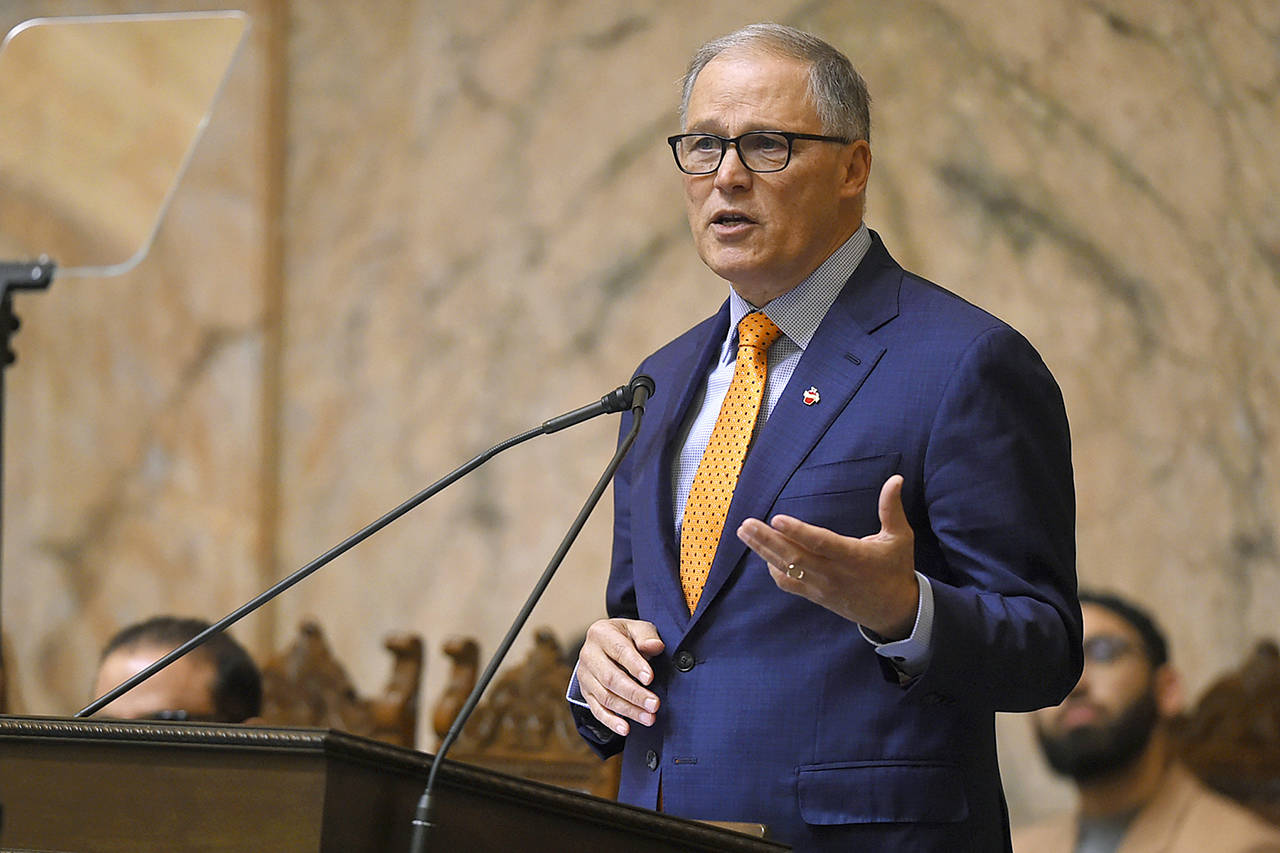OLYMPIA — Gov. Jay Inslee badly wants a clean fuels standard in Washington.
He came close nine months ago but legislation he embraced and House Democrats approved lapsed in the Senate Transportation Committee.
Inslee is trying again, with basically the same bill, confident of achieving a different result.
“I think it is much more likely to pass this Legislature this year,” he said.
It’s not obvious why. At least not yet.
The same moderate Democrat, Sen. Steve Hobbs of Lake Stevens, is running the transportation committee. And he still views a low carbon fuel standard as a pricey and ineffective tool for reducing tailpipe emissions, the largest source of climate-damaging pollutants in Washington.
Enough of Hobbs’ Democratic colleagues apparently shared this position last session to deter caucus leaders from pulling the bill out of the committee and to the Senate floor for a vote.
Caucus membership has changed a bit. Gone is Guy Palumbo of Maltby, a moderate vote. In his place is Sen. Derek Stanford of Bothell, a progressive. Maybe that’s enough to swing the tide in this year’s session.
We’ll likely find out. This is a top priority for Inslee.
On Tuesday, he drew a line in the legislative sand and branded those on the other side — regardless of political party — as deniers of climate change.
“For those who say that we should not take action, I say climate inaction is just as deadly as climate denial,” he said in his State of the State Address. “This is a year for climate action.”
Hobbs is not a climate denier.
Hobbs seems to be more of a climate practicalist. He knows it will cost money to save the planet for future generations. He just thinks those paying should be able to reap some benefits now.
To that end, he came up with Forward Washington. It’s a 10-year, $16-plus billion package of transportation improvements largely paid for with a 6-cent hike in the gas tax and new fees on carbon emissions and development. He said he’d swap cap-and-trade for the carbon fee, if it would help win support.
He argues it’s the best available means at the moment for generating enough revenue to undertake major road projects, like replacing the I-5 Columbia River bridge and U.S. 2 trestle, complying with a federal court order to eliminate fish passage barriers, and curbing tailpipe emissions.
It’s got critics in all caucuses, plus Inslee.
Hobbs’ preference for carbon fees, which Washington voters have rejected twice, or a cap-and-trade system, which California has instituted, are influenced by a December 2018 review of California’s suite of climate policies by its nonpartisan Legislative Analyst’s office.
That study found “a broad consensus” among economists that pricing carbon with a cap-and-trade system or a carbon tax is the most cost-effective way to reduce emissions. In contrast, some of the major policies aimed at reducing emissions in the transportation sector — such as the low carbon fuel standard (LCFS) and financial incentives for zero-emission vehicles — appear to be much more costly.
California’s lawmakers “might want to consider relying more heavily on cap-and-trade” to achieve its emission reduction targets, authors of the study recommended.
There was a time Inslee did champion cap-and-trade and a carbon fee. But he kept getting rebuffed by the Legislature. He’s moved on and is focused on a clean fuel standard as the best available weapon against climate change.
“Washingtonians deserve clean fuels,” he told the Legislature. “And I want to make sure they get them.”
As of Wednesday, he had 57 days left to do it.
Jerry Cornfield: 360-352-8623; jcornfield@herald net.com. Twitter: @dospueblos
Talk to us
> Give us your news tips.
> Send us a letter to the editor.
> More Herald contact information.

























